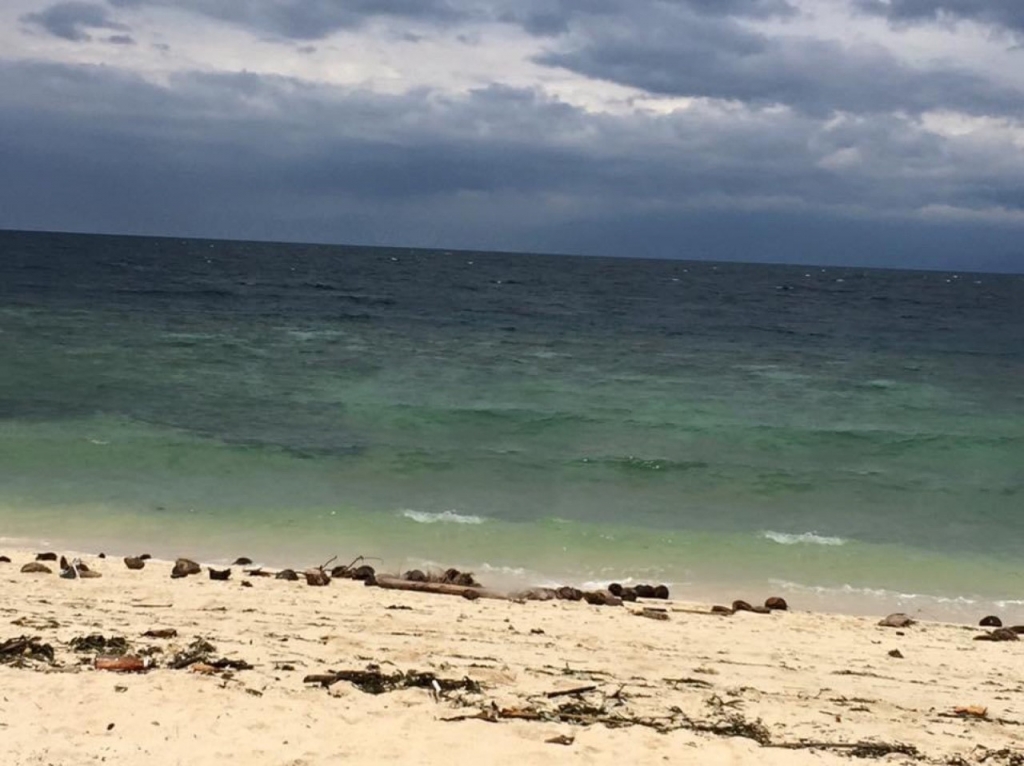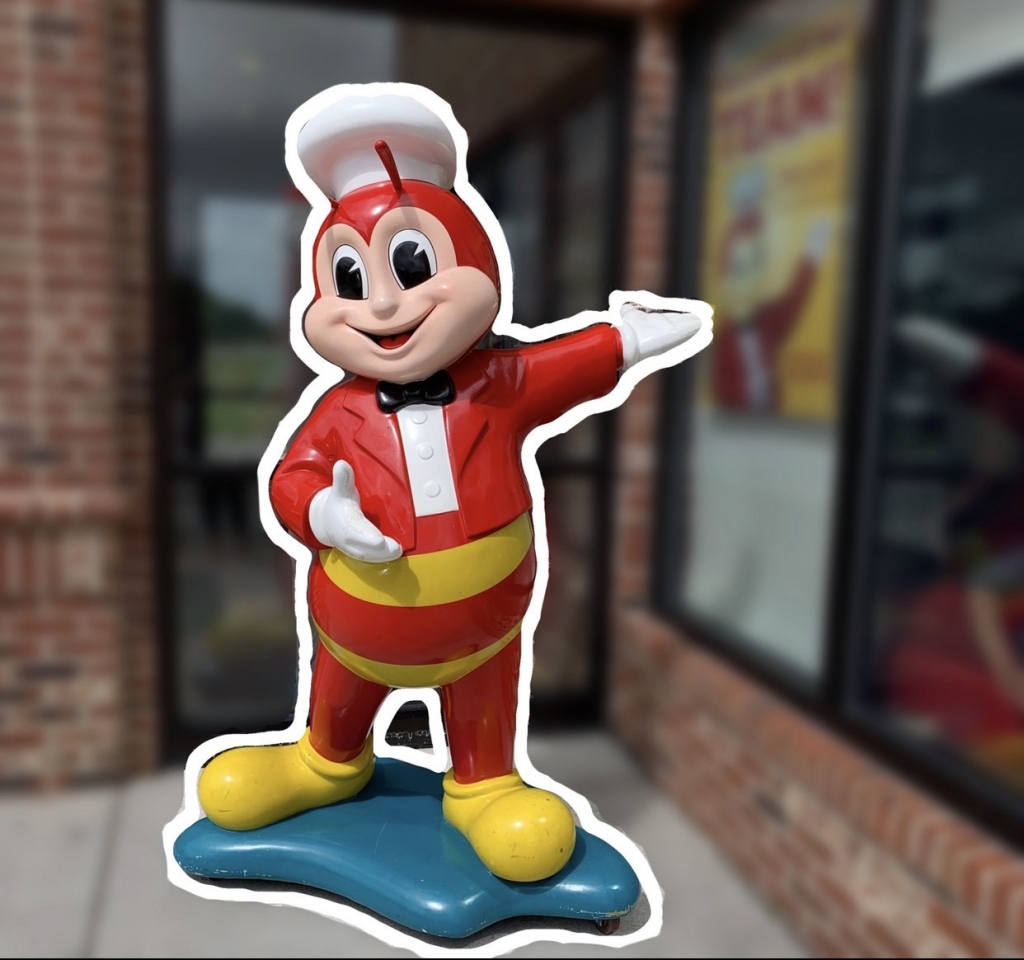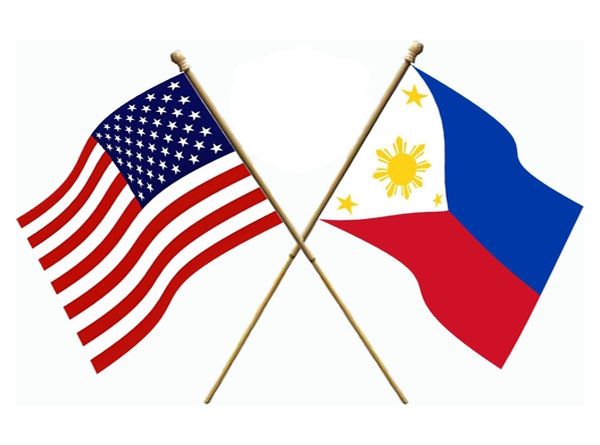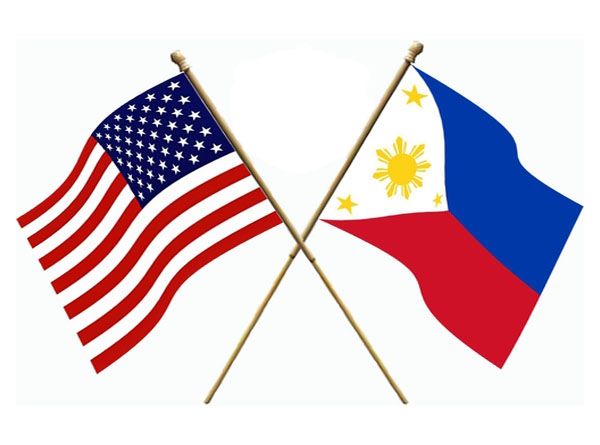By Mich Rouse ’24 & Jibril Howard ’22
In October 2009, Congress passed House Resolution 780 officially designating October as Filipino-American Heritage month. Due to the history of the American colonization of the Philippines, there has been a long but understated Filipino-American history. The 1960s and 1970s saw the largest waves of Filipino immigration to the US – largely driven by the (often false) promise of American citizenship and escaping poverty back home — as they came to provide work initially as “low-skilled” farm laborers, then as nurses, and now as teachers in rural areas where there are shortages. Since the first waves of immigration there have been some famous Filipino Americans who have broken into the mainstream including High School Musical’s Vanessa Hudgens, comedian Jo Koy, labor leader Larry Itliong, among many others.
As biracial Filipino-Americans struggling to find our way in the Asian-American diaspora and in the modern so-called “mainstream” American context where Eurocentricity remains supreme and where almost everything, especially identity, is constantly being packaged and categorized and placed into boxes. The following is a condensed conversation where, thinking on Filipino-American Heritage Month, we reflected on what it means and what it has meant to identify as part-Filipino and to ask ourselves, perhaps inconclusively: are we Filipino or are we not?
What are some things you connect with as a Filipino-American?
Mich: Balikbayan (care packages sent by the Filipino diaspora to family living back home), anything ube, lumpia, and whenever my great-grandmother comes to the U.S.
Jibril: Visiting my grandmother and cousins in California, ube ice cream, tinikling (traditional Filipino dance), and halo-halo (traditional Filipino drink) made by grandmother, and rolling lumpia (Filipino spring rolls) in the kitchen with my grandma and mom.
Where in the Philippines is your family from? Where do you self-identify as being from?
Mich: To most people, I say that I’m born and raised in Durham, NC, but I await the look of confusion (and sometimes disappointment) in their eyes. I keep it short and simple. When I was younger, I’ve definitely had the question followed with, “Where are you really from?” – And again, I say Durham, NC. They still look confused so I end up explaining how my mother was born in the Philippines and my father was born in Raleigh. My mother is from Cebu City, in the Cebu province of the country’s Central Visayas region. Honestly, my response varies from person-to-person, though. If it’s someone I won’t have much interaction with in the future, then I keep it to Durham. In other settings, such as college and activist/organizer spaces, then I’m comfortable providing a bit more detail.
Jibril: My answer will depend a lot on who’s asking since “where are you from?” is often a loaded question asked of people from non-white backgrounds. I tend to say I’m from Atlanta which is where I was born and have lived my entire life. If someone is genuinely curious I’ll explain my background. My Filipino roots come from my mother – her family is from the northern city of Loag, in the province of Ilocos Norte. My grandfather, my “papa,” immigrated in the 1960s as a farm laborer in Hawaii and California. As someone involved in left-leaning politics I often like to talk about him because he was involved in the labor movement spearheaded by Cesar Chavez in California which pushed for equal rights and equal protections for farmworkers. My papa eventually went back to the Philippines and married my grandmother before returning to settle down and live in Sacramento, California where my mother was born.
Have you visited the Philippines? What was that like?
Mich: I visited Cebu when I was 13 around early July for my mother’s birthday. I remember the nauseating taxi rides from my Lola’s (great-grandmother’s) home to the hotel and back and wherever else we went. Sadly, upon arrival, I got sick, and I was sick for 4-5 days because of the 12-hour time difference and the humid climate. Another thing: for some reason the hotel pancakes were the best things I’ve ever had in my life, yet I’m certain they’re just boxed mix. During the trip we also went to the beach and had a cookout, but most of the time it was raining. The beach was very beautiful regardless. I do wish I took more pictures, but I guess that brings me more reason to visit again (post-pandemic, of course).
Jibril: I visited when I was around 8. I don’t remember much except how beautifully tropical it was. We drove from Ilocos Norte to Manila through Luzon which was amazing. I got to go swimming in the South China Sea which I remember being crystal clear. I also got a horrible sunburn. We also visited Baguio which was a resort town constructed in the mountains by the American colonial government (I didn’t learn this history until later) but it was a beautiful and picturesque city, and surprisingly chilly despite being near the Equator.

Did you learn about the Philippines in school? What about since you came to Goucher?
Mich: Nope. There were snippets of Filipino “history” in some of my history classes but never in-depth. I’m tired of having to seek out my family’s history. I just wish it was common to know stuff about the Philippines and have it easily accessible to learn. I guess that we live in a world where it is very much possible to do so, especially with Wikipedia, Youtube, and general Google. However, I can’t help but feel this intense void of immediately not knowing enough about a huge part of my identity primarily because the American education system just doesn’t cover that.
Jibril: Nope. Never. The first time I felt people actually cared about what was happening in the Philippines was when current President Rodrigo Duterte was elected and everyone started to compare him to Trump. I think the lack of discussion about the Philippines is somewhat deliberate since the Philippines was colonized by the US for 48 years, fighting a secretive but brutal war of oppression against the Filipino people. Given the international image the US likes to project of itself as “a liberator” standing for freedom and human rights it makes sense to exclude the atrocities the US committed against Filipino people since they wouldn’t fit into the national narrative. The US only granted the Philippines independence after World War Two as it began to set up the United Nations and European powers began to decolonize.
Since I came to Goucher I’ve taken an International Relations class called “Democracy and Violence in Southeast Asia” where among other issues we discussed terrorism in Mindinao in the southern Philippines. It was overall a very interesting class, but I left feeling a little disappointed by the limited frame of the class – learning about terrorism was fascinating but I was left wanting more. I probably had too high an expectation thinking that one class would fill the 14-year void of Filipino history and politics but I was disappointed nonetheless.
Did you ever feel excluded due to being mixed-race? From which group or both? Did the experience of exclusion feel different?
Mich: There’s this constant battle of belongingness and self-worth that I find myself immersed in. On one hand, I feel that I’m not “Asian enough” to have discussions on the whole “Asian-American experience” because aside from my mother and her friends at annual parties, I don’t hang out with many Asian people. I really only began hanging out with Asian people when I started high school. Before high school, I went to majority Black and Latinx student-populated schools, and only knew of barely a handful of Asian students. I recognize that social interaction doesn’t define overall experience; however, I’d argue that it’s a great factor in my own understanding of what it means to be “Asian.” On the other hand, I’m also not “white enough” because my skin color is literally brown, yet I know I have privileges with my father being white and even my eurocentric birth name. Whenever I spend time with the white side of my family, I’ve always felt uncomfortable because I’m uhhh “built different.” Overall, exclusion from both groups, and I have no clue how to navigate that.
Jibril: I’ve often felt excluded from both groups to be perfectly frank. I feel like for me, being biracial is often seen by people as not quite one thing and not quite the other. And there has always been enormous pressure to choose one group over the other, to sacrifice one identity for the other but never quite fitting in either way. To my Asian grandmother I was always the “puraw” or “white” grandchild while to my white family any issue of race was a topic generally left undiscussed. As a result, I learned from an early age I learned to code switch between “appropriate” topics of conversation depending on the side of the family to make myself feel comfortable in a given space. Because of this experience, I feel like I can trace some of modern-day anxieties around personal space and boundaries to my struggle as a kid trying to appease half a dozen different types of people.
Have you ever been to Jollibee, the Filipino Fast-Food Restaurant?
Mich: I haven’t been since last summer. The one closest to me is in Virginia Beach, approximately 4 hours away. When I do go, I make sure to get nearly the entire menu – from the Chickenjoy (fried chicken) to the Jolly Spaghetti (spaghetti but with hot dogs) to Halo-Halo to multiple Mango Pies.
Jibril: I’ve only been to Jollibee once or twice several years ago because there are none of them anywhere near where I live in Atlanta. It’s hard to describe but Jollibee is Filipino chain restaurant that is basically a KFC on steroids. It’s never occurred to me to check for any Jollibees around Goucher until now but I’m already making a mental note for if/when we return to campus.

What have your experiences been like in conversations regarding POC identity? Have you participated in any affinity group settings?
Mich: I went to a PWI (Predominantly/Private White Institution) for high school where I was introduced to Affinity Spaces. I loved the idea of having a space where I can feel that I finally belong somewhere and not be in this in-between zone of Asian and white. However, I found myself feeling the same thing, only exacerbated.
Jibril: I didn’t have much exposure to affinity spaces prior to Goucher. I had the privilege of attending private/predominately white institutions (PWIs) from elementary school through high school where I was typically one of only three people of color in the room and usually the only Asian. While Goucher isn’t exactly known for its racial diversity it was a significant breath of fresh air to not be the only Asian and Filipino I knew.
The only affinity space at Goucher I’ve been involved with is Asian Identity Alliance started by Claire Anderson’22 and Lia Fukuda’22 last year. They only had a couple meetings and it was nice and I hope to get involved more if it’s restarted back when we’re in-person on campus. I’ll also hope to attend a few meetings by the Asian Student Union.
What’s your favorite Filipino dish? Do you make a lot of Filipino food at home?
Mich: I don’t really cook Filipino food, but I enjoy lumpia (egg rolls), adobo (meat stew), leche flan (caramel custard), and halo-halo. My mother cooks pollo arroz caldo whenever I’m feeling unwell. I’m hoping to learn how to cook Filipino desserts such as biko (rice cake) and turon (fried bananas).
Jibril: I don’t really know how to cook much of anything American or Filipino but I love bibingka & suman which are rice-based sticky desserts my grandmother made. It’s also hard not to love halo-halo which is a cold drink with shaved ice, condensed milk, tapioca, and a mix of beans, ube, coconut shavings, among other things. I want to learn to cook lumpia which is an ambition of mine.
Do you consume Filipino entertainment?
Mich: Sometimes. I enjoy my dose of Jo Koy comedy specials from time to time. My mom and I actually watched him perform a couple of years ago. I also listen to Unique Salonga, who is this indie-rock musical artist.
Jibril: I don’t listen to a lot of Filipino entertainment unless I was at my grandparents house growing up when they always had soap operas or game shows on. I did go through a phase in high-school where I was super into Jo Koy who is a Filipino stand-up comedian.
So, reflecting on all our unique and individual experiences as a Filipino-American growing up in the US, do you consider yourself Filipino?
Mich: (sarcastically) I’ve decided to be Filipino for only this month – Yes, I do consider myself to be Filipino. I’ll always continuously struggle in understanding my place in the world – and more specifically in the Goucher community – being biracial, but I’m hopeful that I’ll meet people who share somewhat of the same experiences as me. I’m also hopeful that they’ll let me know that I’m not alone in this.
Jibril: I always try really hard not to define myself and or tie myself to any one label or group but I do consider myself to be Filipino. I may not speak one lick of the Tagalog or Ilocano (Filipino languages spoken by my family) but I have ties to the community in other ways. I grew up with very unique experiences eating fish eyes on a dare, finding sketchy warehouses to pick up or drop-off balikbayan boxes, and rolling lumpia with my grandma and mom on rainy weekends. With these individual experiences I don’t think it’s possible for me to not self-identify as Filipino.


